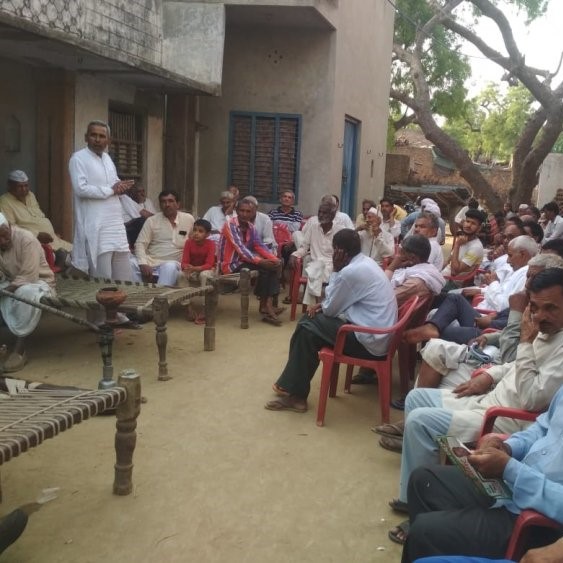Local Self Governance

With an objective to strengthen local self governance, ASCS has taken up various programmes at gram panchayat level. It is conducting ward level meetings in which the issues and problems of the panchayats are discussed. Community sensitisation workshops are organised on the role of panchayati raj institutions (PRIs) in poverty reduction. Focus is being given on the information dissemination of various government schemes to the groups and the community through the use of wall writing and slogan writing.
Activities done so far include:
- Development of leadership and self confidence among the elected members
- Promotion of people’s participation in nagar panchayats
- Mobilisation of the community to participate in decision making related to Environment and sanitation and nagar panchayat development
- Efforts to regularise nagar panchayat and ward level meetings, and motivating women members to participate in the meetings
- Base line surveys conducted to understand the issues and problems of nagar panchayat and prioritising them. With support of the elected representatives, samitiss and ward level committees are formed to address the issues of that particular ward
To strengthen PRI, ASCS is conducting the following interventions:
Women Representation in PRIs: To build the capacities of women representatives, ASCS is organising several training programmes to provide them a platform to develop their capacities and leadership qualities to prepare them for the forthcoming panchayat elections.ffectively running in which 323 women are registered. These women regularly attend the centre and they learn lessons on how to read, write, and on mathematical abilities.
Direct Strengthening of Panchayats: The organisation is continuously making efforts for regularisation of meetings of Gram Sabha and Gram Panchayats. It is taking up various capacity building measures for panchayat representatives so as to make them aware of the legal provisions of panchayati raj and formulation of village development plans. Health issues, children and adult education, functioning of schools and panchayats are being regularly discussed at the meetings being organised for the purpose. Information about government schemes and programmes is being provided at the grassroots level and to panchayat representatives through the panchayat information centres. It is involving itself in the SHG formation and other actions of civil society.
Micro Level Planning: Micro level planning is being felicitated in order to understand the issues and problems of panchayats. This helps the community to understand and identify their problems and prioritise them in a proper manner. With the support of the elected representatives, panchayat samitis and ward level committees are formed to address the issues of that particular ward.
Capacity Building Initiatives: To build the capacities of elected panchayat representatives, ASCS is organising several training programmes with the participation of panchayat representatives. The training cover meaning and history of local self governance, traditional and present panchayats, 73rd amendment act, features, provisions, administration and structure, women rights, roles and challenges of pradhan and women representatives in context of new Panchayati Raj Act. Emphasis is being done on micro planning at the community level.
Regional Level Workshops: To create awareness among the local community and panchayat representatives about their roles and responsibilities, ASCS is organising various workshops aimed at imparting comprehensive knowledge and awareness on the historical perspective of democracy and the 73rd constitutional amendment act and to sensitise them about panchayats.
Panchayat Information Centres or Chetna Libraries: Regarding the right to information to the rural people, information dissemination at the community level is an important aspect of empowering them, as information plays an invaluable role in promoting social awareness of cooperative institutions. At panchayat level small information centres called Chetna Libraries have been set up for the dissemination of information useful at the community level. At present 21 panchayat information centres are functioning in the operational area.
The impact of the activities has now become visible. The neo literates are becoming the channels of social change and imparting the knowledge to other illiterates in the community. Women participate regularly in the literacy programmes and use literacy skills in their daily lives, especially with their own children. The learning materials are being used in each centre. This has created new awareness among the women who attend the centre. Monthly assessments and annual literacy tests are done to assess the impact of the programme. Most of the women have developed reading and writing habits in them.
